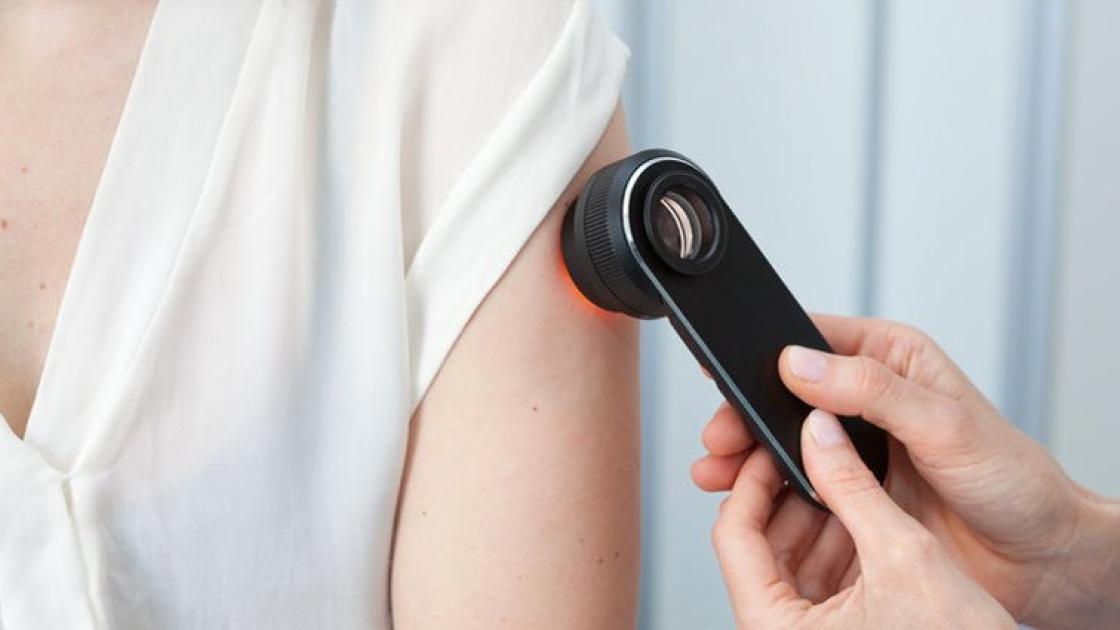
7 sensational tips for summer skin safety
As the temperature warms up, the days are long and the sun shines bright, more time is spent outdoors. During this favorite season for many, going to the beach, hosting backyard barbecues and playing sports outdoors might be some of your favorite activities.
But spending in the summer sun without taking appropriate precautions could increase your risk for skin cancer. According to the National Foundation for Cancer Research, skin cancer is the most common type of cancer in the United States. Fortunately, it’s also the most treatable form. Skin cancer prevention is still much easier than skin cancer treatment. To increase your odds of having a safe summer in the sun, the experts at SIU Medicine recommend the following tips:
Slather on the sunscreen
When enjoying the summer sun, sunscreen is your best friend. The National Foundation for Cancer Research recommends using a product with a sun protection factor (SPF) of at least 30. Because the sunscreen product breaks down, you should reapply sunscreen every 2 hours to maintain the same level of SPF protection, and after doing anything that removes the product from your skin, like swimming or excessive sweating. An ounce (a shot glass worth) is how much you need to cover your whole body, and about a teaspoon’s worth is needed for your face.
Ensure that your sunscreen is “broad-spectrum,” meaning it protects you against UVA and UVB rays, both of which can contribute to skin cancer, as well as the aging effects of ultraviolet exposure. You can check if a sunscreen is broad-spectrum by looking at the label on the front of the bottle.
Additionally, a sunscreen will list if it is “water-resistant” for 40 or 80 minutes. This means that you should reapply if you have been in the water for any length of time greater than the number listed on the label.
If you are concerned about a sunscreen allergy, the best products to use are ones that are “physical blockers,” meaning they are sunscreens that don’t use chemicals to absorb and break down ultraviolet rays; rather, zinc oxide or titanium dioxide reflects the sun’s rays off of you so your skin doesn’t absorb them. These sunscreens are the safest options for children and infants over 6 months of age. For infants under 6 months of age, dermatologists recommend keeping them out of the sun, and when this is not feasible, protecting them with clothing.
Seek shade and use maximum protection during peak hours
The sun’s ultraviolet (UV) rays are the strongest between 10 a.m. and 4 p.m., so try to plan outdoor events earlier or later in the day if possible, but if this is not possible, try to seek shade and use protective clothing, in addition to your sunscreen. And don’t forget about reapplication every 2 hours and after excessive sweating and extended water exposure!
Stay out of tanning beds
Like the sun, tanning beds expose you to harmful UV rays. Besides causing skin cancer, UV rays can also lead to premature skin aging. If having tanned skin color is important to you, opt for a sunless tanning product. But remember, the tanned color does not give you any additional sun protection.
Be careful at the beach
Are you a beach bum during the summer months? Water and sand can actually reflect and intensify the sun’s rays. Be extra cautious while surfing the waves or building sand castles at the beach.
Wear protective clothing
When it’s hot outside, your first instinct might be to wear as little clothing as possible. However, to prevent skin cancer, putting on protective clothing is key. When spending time in the sun, strive to wear long sleeves, a wide-brimmed hat and UV blocking sunglasses. During clothes shopping trips, look for items labeled with an Ultraviolet Protection Factor (UPF).
Stay safe in the car
Being safe in a car doesn’t stop with fastening your seat belt. You need to protect yourself from the UV rays filtering in through your car’s windows. Window glass can prevent UVB rays, but not UVA rays, from getting to your skin. Always keep some sunscreen in your vehicle. Reapply it during long drives. Another option is installing a transparent window film. This type of film is available in all 50 states. According to the Skin Cancer Foundation, some window films can block out almost 100 percent of UV rays.
Get screened
Getting screened regularly by an experienced doctor is an essential skin cancer prevention step. SIU Medicine’s board-certified dermatologists provide collaborative care based on the latest research. Do you have a family history of melanoma, a personal history of skin cancer, or a history of blistering sunburns and/or tanning? If so, you should get a full-body exam once each year. Do a monthly skin self-exam to look for new and unusual or changing moles.
Summer can be a magical time of year--ideal for making fond memories with friends and family members. By following these simple tips, you can enjoy the summer sun without increasing your risk for skin cancer.




